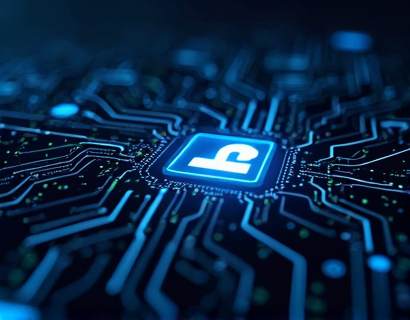Advanced Legacy File Password Recovery: Unlocking Forgotten Data with Cutting-Edge Technology
In the fast-paced world of technology, the ability to recover lost data efficiently and securely is paramount for tech-savvy professionals and businesses. Legacy files, often containing critical information, can become inaccessible due to forgotten passwords, posing significant challenges to productivity and operational continuity. This article delves into the advanced software solutions designed to tackle this issue, focusing on the technology that enables seamless decryption of forgotten passwords from legacy files, thereby ensuring enhanced productivity and data security.
The importance of data recovery cannot be overstated, especially when dealing with legacy systems that have been in use for years or even decades. These systems, while reliable, often employ outdated encryption methods that modern tools struggle to bypass. The result is a barrier to accessing vital information, which can lead to significant downtime and potential loss of business opportunities. Advanced software solutions have emerged to address this gap, offering robust and sophisticated methods to recover lost data without compromising security.
Understanding Legacy File Encryption
Legacy files are typically encrypted using older algorithms and protocols, such as DES (Data Encryption Standard) and its variants, or even simpler methods like basic file permissions. These encryption techniques, while effective at the time of their implementation, are now considered vulnerable to modern hacking techniques. As a result, files encrypted with these methods can be locked away, inaccessible without the original password or key.
The challenge lies in the fact that many users and organizations have lost track of these passwords over time, either due to employee turnover, data migrations, or simple human error. This is where advanced legacy file password recovery software comes into play, utilizing cutting-edge algorithms and techniques to decrypt these files and restore access to the stored information.
How Advanced Software Solutions Work
Advanced software solutions for legacy file password recovery employ a combination of brute force attacks, dictionary attacks, and pattern recognition to crack encryption keys. These methods are executed with high precision and efficiency, leveraging powerful processing capabilities to try millions of possible combinations in a short span of time.
Brute force attacks involve systematically checking all possible passwords until the correct one is found. While this method can be time-consuming for complex passwords, it is often complemented by dictionary attacks, which use a list of common words and phrases to expedite the process. Pattern recognition adds another layer of sophistication by analyzing the structure of the encrypted data to guess the password more accurately.
Moreover, these software solutions often incorporate machine learning algorithms that adapt and improve over time, learning from previous attempts and refining their approach to increase success rates. This adaptive nature ensures that the software remains effective even against the most robust encryption methods.
Benefits of Using Advanced Recovery Software
The primary benefit of using advanced legacy file password recovery software is the restoration of access to critical information, which can significantly enhance productivity. By unlocking forgotten data, businesses can avoid the costly downtime associated with data recovery efforts and ensure continuity in operations.
Another key advantage is the preservation of data integrity. Advanced software solutions are designed to decrypt files without altering their content, ensuring that the original data remains intact and secure. This is crucial for maintaining the trust of clients and stakeholders, as well as complying with regulatory requirements.
Additionally, these tools often provide a user-friendly interface, making them accessible to users with varying levels of technical expertise. This democratization of data recovery technology means that even those without extensive IT knowledge can benefit from its capabilities, further enhancing its value for both individuals and organizations.
Security Considerations
While the ability to recover lost data is invaluable, it is essential to consider the security implications of using such software. Advanced recovery tools are designed with multiple layers of security to protect both the recovery process and the decrypted data.
Firstly, these solutions typically operate in a secure, isolated environment to prevent unauthorized access during the recovery process. Encryption is used at every stage, ensuring that data remains protected even if the software itself is compromised.
Furthermore, many advanced recovery tools offer features like password protection for the recovery process itself, adding an extra layer of security. This ensures that only authorized users can initiate and complete the recovery, minimizing the risk of data breaches.
It is also important to choose reputable software providers that adhere to strict privacy policies and comply with industry standards. Transparency in their operations and a track record of secure data handling are crucial factors to consider when selecting a recovery solution.
Case Studies and Real-World Applications
To illustrate the practical applications of advanced legacy file password recovery software, consider a few real-world scenarios. In one instance, a financial institution faced a critical situation when an employee's laptop containing client data was lost. The laptop was encrypted with an outdated algorithm, and the password was forgotten. Using advanced recovery software, the institution was able to decrypt the files and retrieve the data, preventing a potential crisis and maintaining client trust.
Another example is a research organization that relied on legacy storage systems for archival data. Over the years, several passwords were lost, making it difficult to access important research files. By employing advanced recovery tools, the organization successfully restored access to the data, enabling continued research and innovation.
These case studies highlight the versatility and reliability of advanced recovery software, demonstrating its value across various industries and scenarios.
Choosing the Right Recovery Solution
With the market offering a range of legacy file password recovery tools, selecting the right solution is crucial. Here are some key factors to consider:
- Effectiveness: Look for software with a proven track record of successfully recovering data from various encryption methods.
- Ease of Use: A user-friendly interface can make a significant difference, especially for users who may not be technically inclined.
- Security Features: Ensure the software includes robust security measures to protect both the recovery process and the decrypted data.
- Customer Support: Reliable customer support can be invaluable, providing assistance and guidance when needed.
- Compatibility: Verify that the software is compatible with the specific legacy systems and file formats in use.
By carefully evaluating these factors, organizations can select a recovery solution that best meets their needs, ensuring both efficiency and security in the data recovery process.
Future Trends in Data Recovery Technology
The field of data recovery is continually evolving, driven by advancements in technology and the increasing complexity of encryption methods. Future trends include the integration of artificial intelligence and machine learning to further enhance the efficiency and accuracy of recovery processes. These technologies can predict and adapt to new encryption patterns, ensuring that recovery tools remain effective even as threats evolve.
Additionally, the rise of cloud computing presents new challenges and opportunities in data recovery. As more data is stored and processed in the cloud, recovery solutions will need to adapt to this shift, offering cloud-specific recovery options alongside traditional on-premises solutions.
Another area of growth is the development of more intuitive and accessible recovery tools, aimed at broadening the user base beyond technical experts. This democratization of data recovery technology will empower more individuals and small businesses to protect and recover their critical information.
Conclusion
Advanced legacy file password recovery software represents a significant advancement in data recovery technology, offering a reliable and secure solution for unlocking forgotten data. By leveraging cutting-edge algorithms and adaptive machine learning, these tools ensure that critical information remains accessible, enhancing productivity and maintaining data integrity.
For tech-savvy professionals and businesses, investing in such software is not just a precaution but a strategic move to safeguard against the risks associated with lost data. As technology continues to evolve, the importance of robust data recovery solutions will only grow, making it an essential consideration for any organization.











































